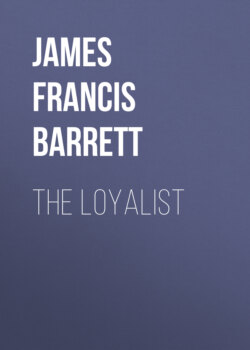Читать книгу The Loyalist - James Francis Barrett - Страница 12
На сайте Литреса книга снята с продажи.
III
ОглавлениеTable of Contents
And so it was decided that Marjorie would be present at the Governor's Ball. As custom did not require mothers to accompany their daughters to such functions, but allowed them to go unattended, Mrs. Allison preferred to remain at home. To what splendor and gayety the affair would lend itself was a matter of much speculation. This was the Governor's first event, and no one was aware of his prowess on the ballroom floor.
Once the list of invitations had become public, it was understood quite generally that no distinction was made between those that had, and those that had not, attended the Mischienza. Whether the number would be surprisingly small, or whether the affair would fail of success without the Mischienza ladies, could not be foretold. Indeed such speculations were idle, since no discrimination had been made. There were a number of young French Officers in the town and one or two of General Washington's aides had remained because of the pressure of immediate business after the British evacuation. These of course would attend. All the other available young men belonged to the families who had held a more or less neutral position in the war, and who had not offered their services to the patriots nor yielded allegiance to the foe. As these neutrals were among the most prominent people of the city, their presence would, of course, be altogether desirable.
Marjorie was invited through the efforts of Peggy Shippen, who had proposed her name to His Excellency on the occasion of his visit to her house. She would be included in their party and would be assigned a partner befitting her company. Because of the prominence of the Shippens, it was thought that the gallant young French Officers, would be assigned to them. Marjorie rejoiced at this although the Shippen girls evinced no such sentiment. Whether it was because the French alliance was distasteful to them or because their Tory leanings took precedence, they preferred other guests for partners. But as the matter was to be decided by lot, their likings were not consulted.
Ere long the city was agog with speculation respecting the coming ball. The battle of Monmouth was accorded a second place. The disdain of the middle class, who had been embittered against such demonstrations by the profligacy displayed during the days of the British occupation, soon began to make itself felt. That it was the first official or formal function of the new republic mattered little. A precedent was about to be established. There was to be a continuation of the shameful extravagance which they had been compelled to witness during the winter and which they feared they would be forced to maintain for another protracted period. Living was high, extremely high, and the value of the paper currency had depreciated to almost nothing. Indeed it was said that a certain barber in the town had papered his entire shop with the bills and that a dog had been led up and down the streets, smeared with tar, and adorned cap-a-pie with paper money. To feed and clothe the army was expense enough without being compelled to pay for the splendors of a military ball. Small wonder that the coming event aroused no ordinary speculation.
Nevertheless preparations went on with growing vigor and magnificence, and not the least interested was Marjorie. The event was now awaited with painful anxiety. Even the war for a moment was relegated to a place of minor import.
